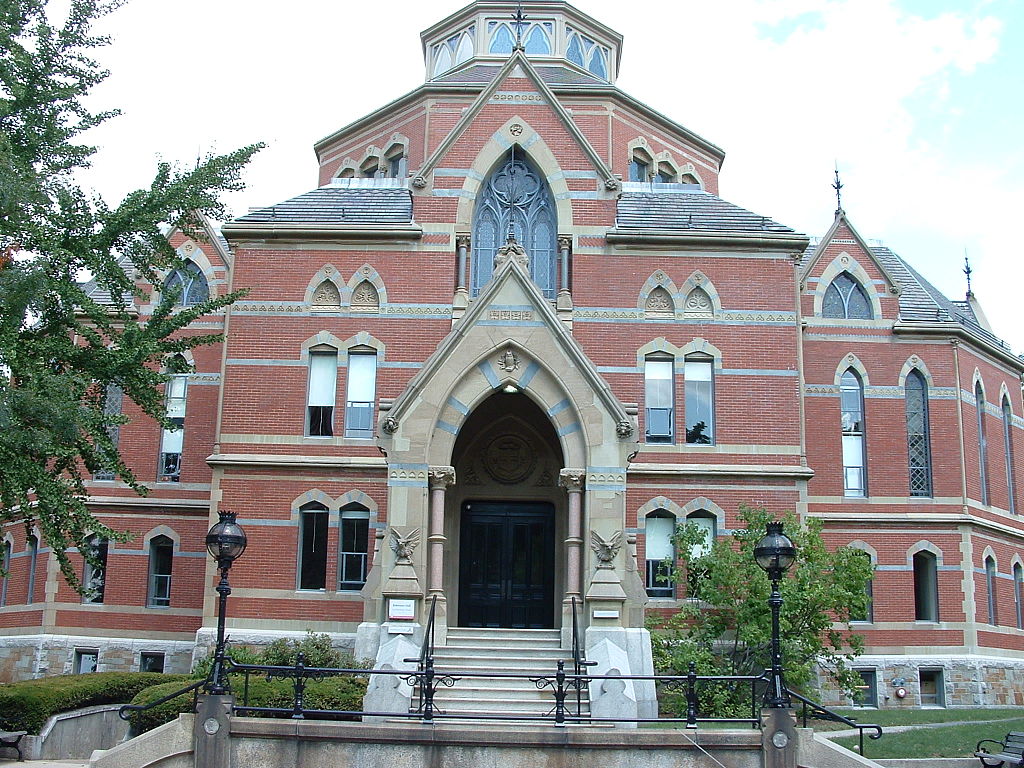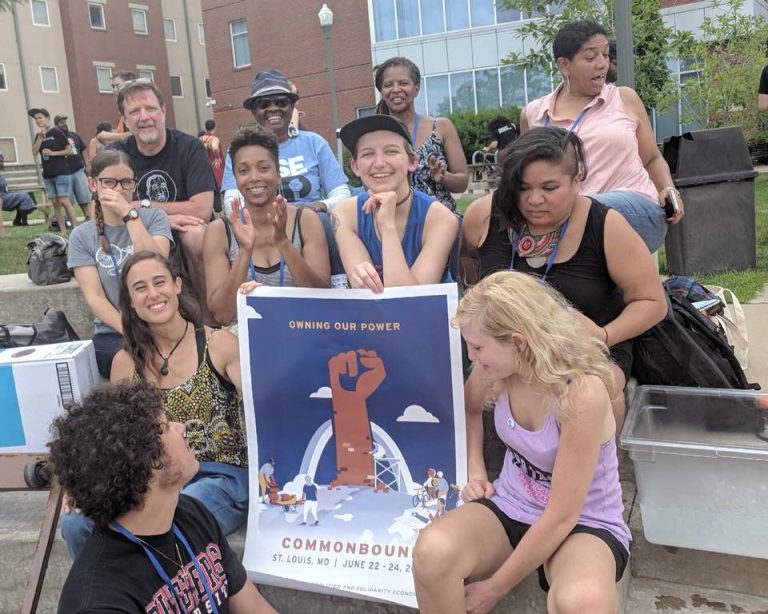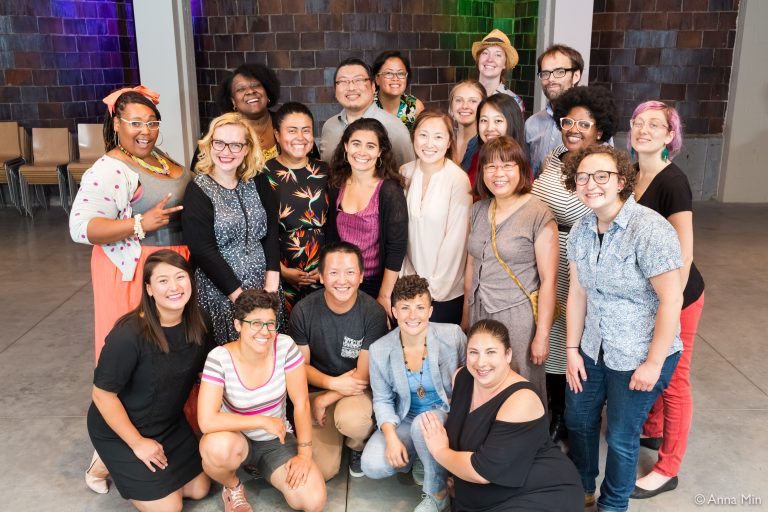From Prep School to Class Traitor
I’m a former prep school boy. I believe Dr. Christine Blasey Ford and survivors everywhere.
These past few weeks I’ve watched friend after friend post on Facebook about the sexual assaults of their past. I’ve watched them name the many, many good reasons they didn’t report; risk incredible vulnerability to speak up about what had been left, up to that point, choicefully silent. The feeling for me, as a man, is familiar: rage at men who abuse power, grief at how many people I love have been permanently altered by that abuse, shame at my people for perpetrating such harm and shame personally for not knowing how to shift it.
It’s crucial that me and my people — white, owning class men — let ourselves feel this shame in this moment, and let it guide us into centered action in the present. Our lives and humanity, too, depend on it.
Like Brett Kavanaugh, I come from the land of white wealthy prep school boys: navy blue blazers and ties, Hogwarts-style dining halls, lacrosse sticks slung over shoulders, that buoying feeling of privilege that tells you I belong. Like Kavanaugh, I thrived. I earned varsity letters, got into an Ivy League university, and was elected by my peers as one of our five senior prefects (four of us were boys).
Like Kavanaugh, I also have many strong relationships with women. I’ve been a teacher of women students and a coach of women basketball players. I like to think I’ve been a steady, positive presence in their lives. I’m a loving and devoted partner.
Do you know how much “having good relationships with women” and “an Ivy League education” amount to a defense against having ever participated, as a young cisgender man, in rape culture?
Not. One. Bit.
Here are some things that I and other cis men, in our elite school environments, were socialized to view as normal/harmless:
- Objectifying and dehumanizing women
- Diminishing anything feminine or “gay” in other men
- Drinking excessively and hooking up at parties
- Verbally pressing women for sex; trying to push sexual encounters to go further, even when the other person was reluctant
- Touching without consent
That’s the tip of the iceberg, and it goes all the way down.
Kavanaugh could have responded to these accusations with depth, nuance, or genuine self-searching and reflection — qualities you’d look for in a Supreme Court Justice. It’s not easy to admit these things, in public. But I can’t imagine these weeks, months, years have been easy for survivors.
If I felt threatened by the toxic, entitled masculinity at my prep school, what must it feel like to be at the margins of that culture?
Justice requires repair. Repair requires truth telling.
As Ana Maria Archila, co-Director of Center for Popular Democracy (and one of the women who confronted Jeff Flake in the elevator), said: “The way that justice works is you recognize hurt, you take responsibility for it, and then you begin to repair it.”
Any harm that men like Brett Kavanaugh and his peers, and I and my peers, have caused — in the cloud of our entitlement and privilege — is part of a much larger fabric. It cannot be easily repaired. By centering an angry defense of himself as a “good guy,” rather than centering the experiences of survivors and shedding light on the toxic masculine cultures he grew up in, he’s already spectacularly failed the most important test of what is demanded of men in power. Men — and wealthy white cis men in particular — need to be accountable to where we come from.
Brett Kavanaugh has lied during these proceedings, both overtly and by omission. Regardless of whether he committed the assaults — which I believe he did — he’s not yet in integrity with his past, or our present. And he’s certainly not fit to make decisions that impact the future lives and bodies of millions of women and poor and working-class people.
None of this is, of course, new. Our justice system has always held poor people, Black and Brown people, and other non-white communities and immigrants to different standards than their privileged white male counterparts. (Half the white students at my prep school would have been locked up if our drug use was policed like it is in Black communities.) There are hundreds of years of momentum behind the shadow side of our justice system. It won’t be a surprise if Kavanaugh is elected to the highest position within it. He is a vestige of that shadow.
But there’s also a counter-momentum — a wave rising the majority of this country — a vast coalition of people of color, poor and working-class people, and women, gender nonconforming, and trans people — is building steam and power. It has wealthy white men in the halls of power running scared. Because many white people, cis men, and wealthy people are also realizing that we are better off resisting systems of domination and control and removing abusers from power.
If you don’t believe survivors’ stories — and you think we should be giving men like Kavanaugh the power to harm the lives of so many more people — I want to ask: what/who are you protecting?
Because I also remember our “senior bench,” as a freshman — the terror I felt each time I approached it. How I’d make myself small, to avoid their gaze; or puff myself up, ever so slightly, to pass as masculine enough.
I remember how it felt to sit on the long wooden bench in our locker room before practice, pulling my lacrosse pads over my head, over my arms, gloves over my hands, learning to stiffen and protect my body.
I remember the fear and loathing I felt around the men who puffed themselves up, who joked about women’s bodies, who took up all the air and space in that room, also in their own way doing what their bodies told them to do to survive.
If I felt threatened by the toxic, entitled masculinity at my prep school, what must it feel like to be at the margins of that culture? To be more directly targeted? To face both the threat and reality of sexual violence?
To have someone on the highest court of the country who lacks the capacity to imagine such basic questions, let alone the courage to name them, is as dangerous as the other side knows it is necessary. To keep the owning class in power, it is necessary to defend powerful white men. It is necessary to keep those who challenge them silent. Patriarchy protects owning class supremacy, and owning class supremacy in turn protects patriarchy.
But these systems harm all of us as individuals.
A few Saturdays ago, as the Senate judiciary committee voted, I cried with grief and rage at the ways I have denied my full humanity and contorted myself to keep safe within patriarchy.
I cried with grief and rage at what it is like to stand helpless while another one of them — us — is offered vast institutional power, the ability to shape the lives of countless others.
I cried with grief and rage for what so many people I love have lived through, at the hands of such men.
Maybe the hardest thing to admit is that it makes sense that so many of us rush to defend powerful/wealthy white men — it’s such a real instinct of self-preservation. Many of us have been surviving that way for our entire lives, and generations and generations before that. But what would be possible if we lived in a world in which survivors were believed? In which resources were equitably shared?
In which transformative justice — repair — could be fully enacted?
That’s a world in which everyone — even former prep school boys like Brett Kavanaugh and me — can come into our full humanity, in safety, in dignity, and in connection.
So, what can you do to help move toward this world? Especially if you are a former prep school boy like me? Here are a few ideas:
Take action with Center for Popular Democracy and other organizations that challenged Kavanaugh’s confirmation and are continuing to organize resistance to the patriarchal, classist right-wing agenda of which he is a part.
Move resources to gender justice organizations led by those most impacted. Groundswell Fund and Third Wave Fund are two amazing ways to channel $ to this work. I encourage you to check them out and make a meaningful donation — something that matches your longing for a world with gender justice, something that challenges you — today.
Speak out. If you’re a man who has/had access to elite education, be vocal about your opposition to Kavanaugh and publicly show solidarity with survivors. Organize other alumni. Challenge, organize, and educate other men.
Make time for healing, in community. Patriarchy takes its toll on everyone. In what ways do you continue to exert power and control over others as ways to maintain safety? How can you get support to let go of these patterns and develop new ways of being?
Believe survivors. Extend love and care to people in your life who have been impacted by sexual violence. It’s a hard time.
We are hosting a webinar on this stuff on Wednesday, November 7th. Join us, especially if you are a cis male with class privilege!
Adam Roberts is a former prep school boy now in his mid-thirties. He works for Resource Generation, which organizes a multiracial constituency of young people with wealth working toward the equitable distribution of wealth, land, and power.



